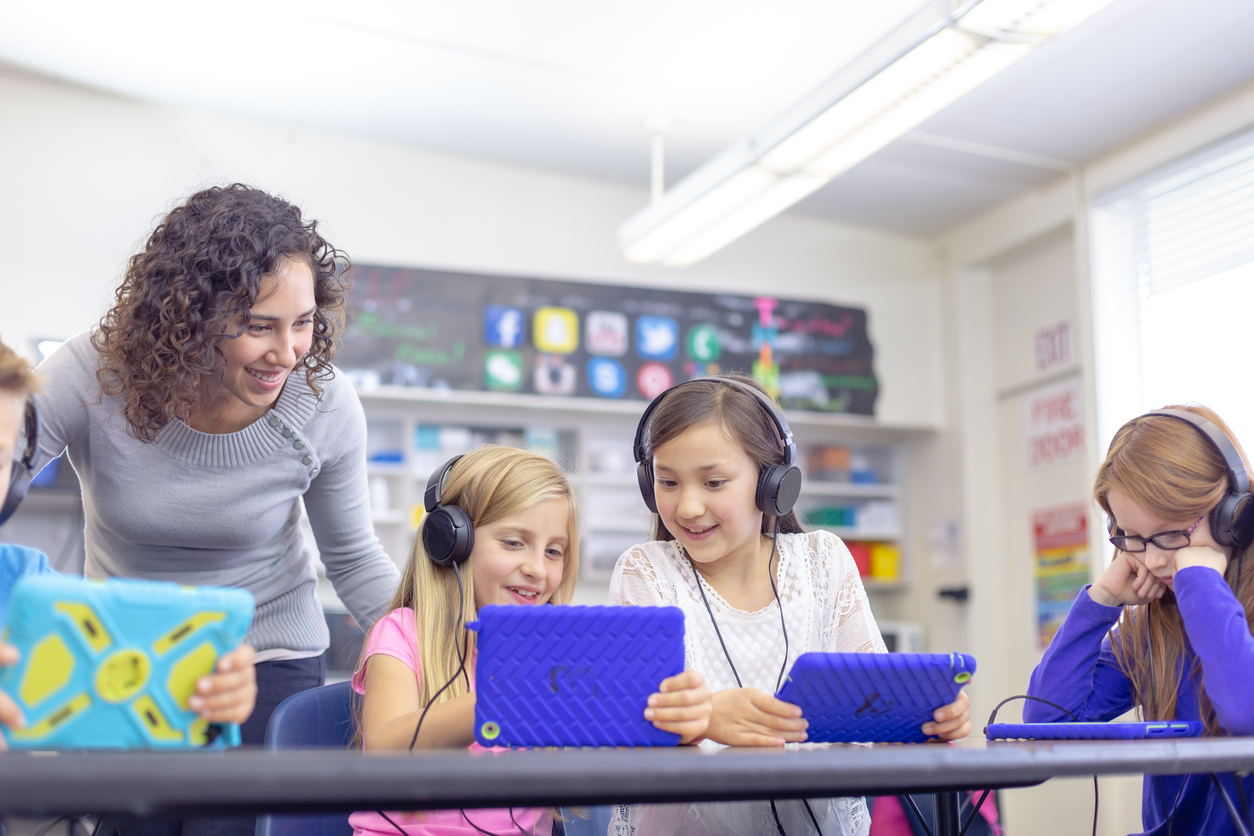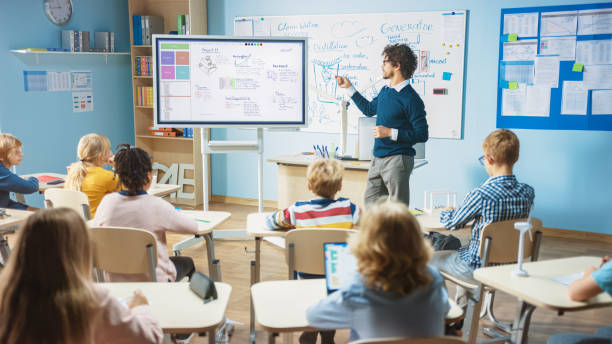Tailored Primary Science Tuition Singapore for Your Child’s Success
Tailored Primary Science Tuition Singapore for Your Child’s Success
Blog Article
Checking Out the Different Mentor Methods in Key Science Education Today
The landscape of key scientific research education and learning is evolving, with various mentor techniques getting prestige in modern class. Inquiry-based discovering, hands-on experiments, and the assimilation of innovation are redefining how educators involve young minds. Furthermore, collaborative approaches and separated instruction are being used to satisfy the diverse requirements of students, improving both involvement and understanding. As we check out these methods, concerns emerge about their efficiency and the ramifications for future educational methods. What might these shifts in technique mean for the next generation of students?
Inquiry-Based Learning
Inquiry-Based Knowing (IBL) is an instructional approach that encourages students to discover scientific principles with doubting, examination, and hands-on testing. This technique highlights the function of pupils as active individuals in their knowing, promoting essential reasoning and problem-solving abilities. By involving with real-world concerns, pupils come to be curious and inspired, which improves their understanding of scientific principles.
In IBL, instructors act as facilitators, guiding students as they browse their inquiries as opposed to delivering information straight. This student-centered approach allows for differentiation, accommodating numerous discovering designs and paces. Trainees create abilities in creating theories, creating experiments, and examining data, which are crucial for scientific literacy.
In addition, IBL promotes partnership among trainees, urging them to share concepts and searchings for. This collective questions promotes social skills and a sense of neighborhood within the classroom. The process of questions encourages strength, as pupils discover to embrace failing as a tipping rock towards understanding.
Hands-On Experiments
Hands-on experiments are a crucial element of reliable scientific research education and learning, complementing the concepts of inquiry-based understanding. These experiments enable students to involve straight with scientific ideas, cultivating a deeper understanding through experiential discovering. By adjusting materials and observing results, young students can grasp abstract theories in substantial ways.
Such activities promote essential thinking and analytical abilities, as pupils hypothesize outcomes, conduct experiments, and assess results. This process urges them to ask inquiries, fine-tune their understanding, and establish a scientific frame of mind. In addition, hands-on experiments can be tailored to varied understanding designs, making sure that all pupils have the possibility to involve meaningfully with the content.
Furthermore, hands-on experiments frequently encourage collaboration among peers, advertising team effort and communication abilities. Working in groups allows students to share concepts, talk about findings, and pick up from each other, which improves their total educational experience.
Including hands-on experiments right into the primary science educational program not just enriches the finding out setting yet also cultivates a lifelong passion in scientific research. By actively taking part in their education and learning, trainees are more probable to create an enthusiasm for clinical query that expands past the classroom.

Modern Technology Assimilation
Integrating technology into main scientific research education has actually come to be increasingly vital in cultivating trainee interaction and enhancing discovering end results. Using electronic tools, such as interactive simulations, online laboratories, and educational software program, offers pupils with chances to explore clinical ideas in cutting-edge ways. More about the author These resources promote a much deeper understanding of intricate subjects by enabling learners to visualize and manipulate variables that would be unwise in a typical classroom setting.
Additionally, innovation assimilation encourages personalized finding out experiences. Trainees can proceed at their own rate, reviewing tough concepts through multimedia resources, which cater to various knowing styles. This flexibility not only supports specific growth however additionally cultivates a feeling of freedom in learners.
In addition, innovation serves as a bridge to real-world scientific research, attaching trainees with present research study and expert payments. Access to scientific journals and on-line databases widens students' point of views on clinical inquiry and fosters essential thinking skills.
Collaborative Learning
Joint understanding plays a crucial role in primary scientific research education by cultivating teamwork and communication abilities among trainees. This technique encourages students to function together, share understanding, and take part in analytical, which enhances their understanding of scientific principles. By participating in team tasks, trainees discover to verbalize their concepts, pay attention to diverse perspectives, and discuss solutions, every one of which are crucial skills in both scholastic and real-world contexts.

Study indicates that joint learning can lead to enhanced inspiration and involvement in science topics, as trainees locate satisfaction in common experiences (primary science tuition Singapore). Additionally, this approach my link prepares trainees for future joint undertakings, equipping them with the abilities essential for effective team effort in greater education and specialist environments. Ultimately, welcoming collective understanding in primary scientific research education and learning can substantially improve the discovering experience and promote a much deeper understanding of scientific inquiry
Differentiated Instruction

Distinguished guideline can show up in numerous ways, such as differing the web content, procedures, or items of knowing. For example, instructors might make use of tiered jobs that offer differing degrees of complexity, permitting students to work at their particular preparedness levels. Furthermore, adaptable grouping methods can help with collaboration among pupils with various abilities, promoting peer understanding.
Evaluation plays a vital function in this strategy, as it notifies guideline and assists instructors comprehend each trainee's distinct requirements. Developmental assessments, such as quizzes and article source monitorings, can lead educators in readjusting their strategies to enhance learning results. primary science tuition Singapore. Ultimately, by executing distinguished direction in primary scientific research education, educators can cultivate a more equitable and efficient understanding environment, equipping all trainees to reach their full capacity in understanding scientific phenomena
Verdict
In recap, the diverse training strategies in main scientific research education, consisting of inquiry-based knowing, hands-on experiments, modern technology assimilation, joint knowing, and differentiated guideline, collectively add to a much more reliable understanding environment. These methods promote critical reasoning, analytical abilities, and a much deeper comprehension of clinical concepts. By implementing these approaches, teachers can develop helpful and interesting class that resolve the diverse requirements of students, inevitably cultivating a long-lasting rate of interest in scientific research and boosting scholastic achievement.
Inquiry-Based Discovering (IBL) is an instructional approach that motivates pupils to explore clinical ideas via questioning, investigation, and hands-on experimentation.Collaborative understanding plays a vital role in main scientific research education by cultivating team effort and communication abilities amongst trainees.Research suggests that collaborative discovering can lead to enhanced motivation and engagement in scientific research subjects, as pupils locate satisfaction in shared experiences.In promoting a comprehensive knowing atmosphere, distinguished guideline arises as a crucial method to fit the diverse requirements and capacities of pupils in primary scientific research education. Eventually, by implementing distinguished instruction in primary scientific research education and learning, educators can grow a much more efficient and fair discovering setting, empowering all trainees to reach their full possibility in comprehending clinical phenomena.
Report this page